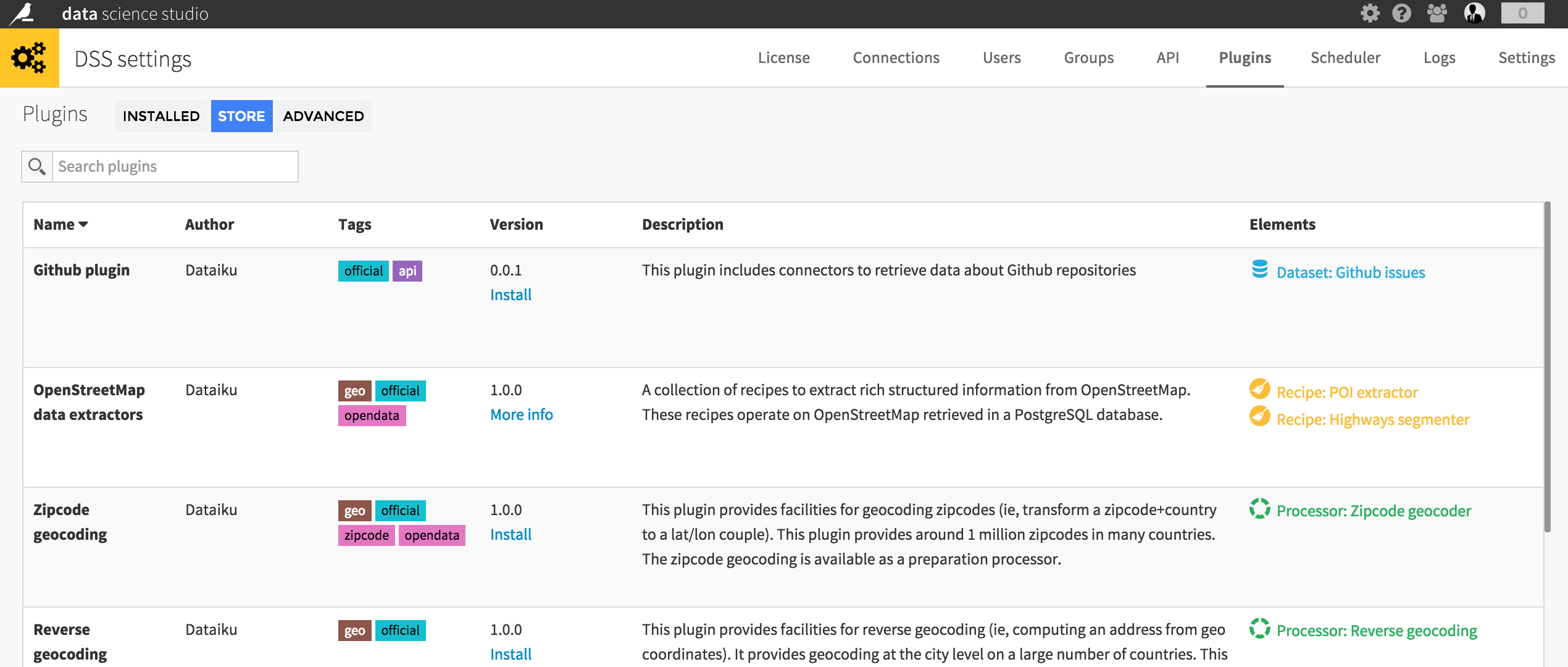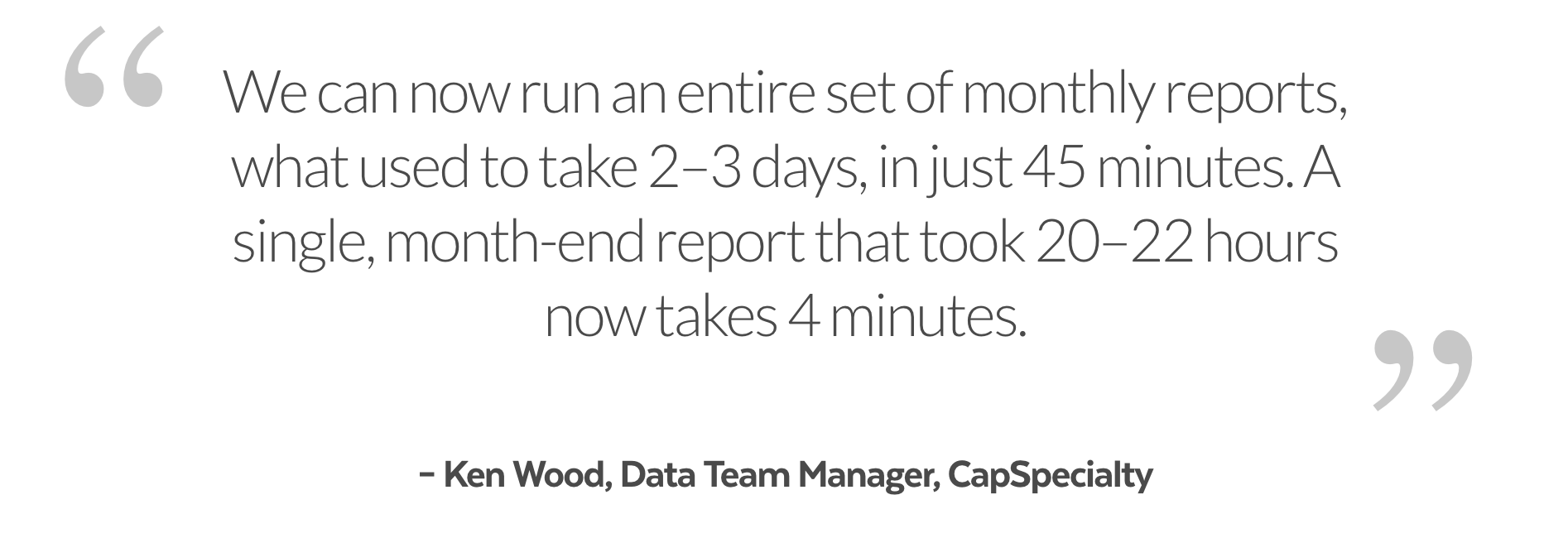Make them feel special– this is key in marketing, business, and dating. 
It’s no different in the tech world. Companies want products with more functionality and customizability, and a plugin does exactly this. It’s a piece of software that adds a specific (sometimes essential) feature to a program. An example is Adobe Flash Player, which lets you view files like videos.
In Dataiku, a plugin comes as a package of code that you can edit via code or an intuitive graphical interface (if you’re not as comfortable with programming languages). Plugins in Dataiku let you add:
-
Datasets
-
Processors (apply a transformation to the data)
-
Custom formula functions
-
Recipes (outline of pipeline made of processors + formulas)

You can find an updated list of all available plugins here. Click and install the plugin that you want (Geocoder, Tableau, Salesforce, Instagram, Twitter,etc). If there’s a plugin that you can’t find, then tell us and we’ll do our best to build it. Or feel free to build it yourself (using some Python and JSON), and we’ll make it public!
With big data on the rise, one of our most popular plugins is the Snowflake plugin, which accelerates computation power and speed. Snowflake is a hot cloud-based data-warehousing startup with half a billion dollars in series A and B funding. They’re currently available on Amazon Web Services (AWS) and are going live on Microsoft Azure at the end of 2018.
Each snowflake is different, and Snowflake is special because of these pros:
-
Cost-effective and scalable system through dynamic resizing (boost/reduce resource use depending on demand)
-
Different groups can access the same data at the same time without affecting performance

Snowflake is a powerful engine for Dataiku computations, so Dataiku partnered with Snowflake on a plugin that enables you to quickly load data stored in Amazon S3 (cloud storage) into Snowflake. This means faster machine learning (ML) modeling and intensive analytics through in-database processing and Snowflake’s high performance and scalability.
The Snowflake plugin has widespread implications. For example, anyone can build a recommendation engine for their website that can scale to many concurrent users (through Snowflake’s scaling technology). Someone in cyber security (known for its dense data) can easily power their threat analysis models through Snowflake.
For more info on the Snowflake plugin, as well as a step-by-step of how to use it, click here.
